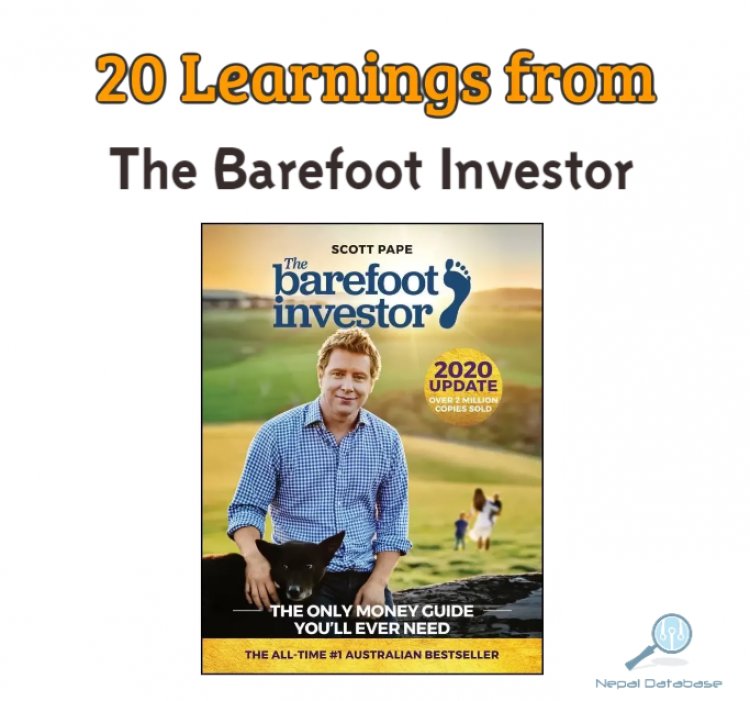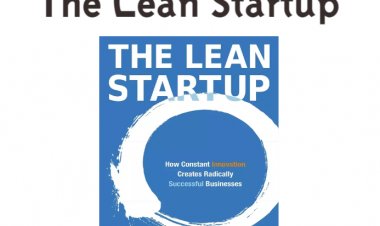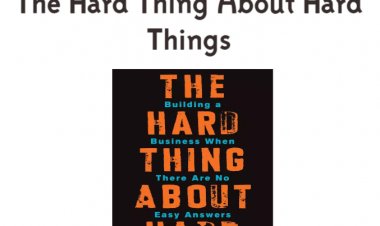The Barefoot Investor: 20 Important Lessons for Financial Success
Learn 20 key lessons from "The Barefoot Investor" to transform your finances and achieve long-term financial security. Automate your finances, eliminate debt, and invest wisely for a brighter financial future.

The popular personal finance book "The Barefoot Investor: The Only Money Guide You'll Ever Need" by Scott Pape provides practical and actionable advice for managing your money effectively. Readers from all over the world have responded favorably to Pape's original and uncomplicated approach to money management. In this article, we'll look at 20 key takeaways from "The Barefoot Investor: The Only Money Guide You'll Ever Need" book that can help you make financial changes in your life.
-
Automate your finances:
Pape emphasizes the importance of automating your finances. Setting up automatic transfers to your savings and investment accounts helps you develop the habit of saving and investing, which makes it more likely that you will steadily increase your wealth over time. -
Create a "bucket" system:
When you use a bucket system, you allocate different portions of your money to different buckets. You can set aside money using this technique for expenses, savings, investments, and guilt-free spending. It makes sure that your financial objectives are prioritized and that you strike a good balance between today's pleasure and tomorrow's security. -
Pay yourself first:
One of the fundamental principles outlined in the book is to pay yourself first. This means setting aside a portion of your income for saving and investing before paying any bills or expenses. By prioritizing your financial future, you build a strong foundation for long-term wealth. -
Use a "Splurge" account:
Pape suggests setting up a separate account for guilt-free spending on things you enjoy. By allocating a small portion of your income to this account, you can indulge in discretionary expenses without feeling guilty. It helps you maintain a healthy balance between responsible money management and enjoying the present. -
Choose low-cost superannuation funds:
Superannuation, or retirement savings, is crucial for financial security in your later years. Pape advises selecting low-cost superannuation funds that offer competitive returns and minimize fees, helping you grow your retirement savings more efficiently. -
Eliminate bad debt:
The book emphasizes the importance of eliminating bad debt, such as high-interest credit card debt. Pape provides strategies for paying off debts systematically, helping you regain control of your finances and avoid unnecessary interest payments. -
Build an emergency fund:
Creating an emergency fund is crucial to deal with unexpected expenses or financial setbacks. Pape suggests saving three to six months' worth of living expenses in a separate account, ensuring that you have a safety net in case of emergencies. -
Prioritize personal insurances:
Protecting yourself and your loved ones from unforeseen circumstances is essential. Pape recommends reviewing your personal insurances, such as life, disability, and income protection insurance, to ensure adequate coverage that suits your needs and circumstances. -
Optimize your mortgage:
Pape provides practical tips for optimizing your mortgage, such as making extra repayments and exploring refinancing options. By managing your mortgage effectively, you can save a significant amount of money on interest payments and reduce the loan term. -
Invest in low-cost index funds:
Rather than trying to time the market or pick individual stocks, Pape suggests investing in low-cost index funds. These funds provide broad market exposure and typically offer competitive returns over the long term, helping you grow your wealth steadily. -
Diversify your investments:
Diversification is a key principle in investing. Pape recommends spreading your investments across different asset classes, such as stocks, bonds, and real estate, to reduce risk and maximize potential returns. -
Understand compound interest:
Pape emphasizes the power of compound interest in building wealth. By starting early and consistently investing over time, you can benefit from compounding returns, where your initial investment grows exponentially. -
Keep your financial paperwork organized:
Maintaining organized financial paperwork is crucial for efficient money management. Pape suggests creating a filing system to store important documents such as bills, receipts, and financial statements, making it easier to track your expenses and stay on top of your finances. -
Teach your children about money:
Instilling good money habits in your children is invaluable. Pape encourages parents to teach their children about budgeting, saving, and responsible spending from an early age, setting them up for a financially secure future. -
Understand your financial goals:
Clarifying your financial goals is essential for effective money management. Pape advises setting specific, measurable, achievable, relevant, and time-bound (SMART) goals, helping you stay motivated and focused on your objectives. -
Regularly review your financial progress:
Monitoring your financial progress is crucial for staying on track. Pape recommends reviewing your finances regularly, assessing your budget, savings, and investments, and making necessary adjustments to ensure you are moving closer to your goals. -
Plan for retirement:
Planning for retirement is a long-term goal that requires careful consideration. Pape provides strategies for estimating your retirement needs and recommends seeking professional advice to develop a comprehensive retirement plan. -
Be mindful of lifestyle inflation:
As your income increases, it's essential to avoid falling into the trap of lifestyle inflation. Pape encourages readers to be mindful of their spending habits and make intentional choices that align with their values and long-term financial goals. -
Seek financial independence:
Financial independence is a goal that many aspire to achieve. Pape emphasizes the importance of pursuing financial independence, where your passive income covers your expenses, giving you the freedom to make choices based on your values and passions. -
Continuously educate yourself:
The journey to financial success is ongoing, and Pape encourages readers to continuously educate themselves about personal finance. By reading books, attending seminars, and staying informed about market trends, you can enhance your financial knowledge and make informed decisions.
The book "The Barefoot Investor: The Only Money Guide You'll Ever Need" contains insightful advice that can change the way you handle money. By automating your finances, prioritizing savings, eliminating bad debt, and making informed investment decisions, you can build a solid foundation for long-term financial security. Applying these lessons and adopting a mindful approach to money management can lead to a brighter financial future and greater peace of mind.
What's Your Reaction?





































































































